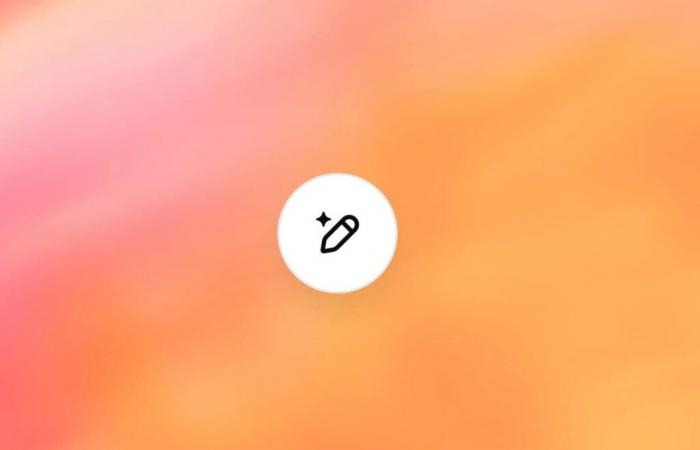From December 5 to 18, OpenAI is hosting 12 days of announcements and demos. New AI models and innovative features are expected.
It’s Christmas early for AI aficionados. On the principle of the forward calendar, OpenAI has planned a slew of new features and demonstrations from December 5 to 18. “Every day of the week, we will have a livestream with a launch or demo, with highlights and a few little surprises. We have some great things to share,” teased Sam Altman on X shortly before the start of hostilities. 12 days that promise the arrival of long-awaited models and features and, most certainly, a few surprises like OpenAI knows how to concoct. The JDN reveals to you day after day all the announcements to remember.
D5: Apple Intelligence is arriving gradually
For its fifth day, OpenAI takes stock of its previously announced partnership with Apple Intelligence (generative AI on Apple devices), which is starting to materialize. The integration of ChatGPT into the heart of the Apple ecosystem is gradually taking place, with a first phase on macOS for users with the latest version of the operating system. The assistant can now remember the context of current processes, providing a more consistent experience.
For iOS users within the EU, you will have to wait until April 2024 to benefit from these features. The demonstration notably highlighted the creation of personalized playlists – although direct opening in the Music application is not yet operational – as well as future integration with the camera button of the iPhone 16 for direct access to ChatGPT Vision .
J4: Canvas mode expands and becomes smarter
For the fourth day of its “Shipmas”, OpenAI radically transforms son mode Canvas into a true automated developer assistant. The feature, now available to paid and free users, is no longer just a visual interface: it becomes a complete development environment where AI can search for data, generate code, execute it and visualize the results directly in the console.
Canvas is now positioned as a development co-pilot capable of supporting developers and data scientists throughout their workflow. OpenAI also extends this capability to custom GPTs. An update that moves even further towards intelligent automation of development and data analysis tasks.
D3: Sora available for ChatGPT Plus and Pro users
OpenAI rolls out its highly anticipated Sora AI video generatorten months after its initial announcement (Read our article Video generation: 10 months after its announcement, OpenAI’s Sora is (finally) here). The service is available to ChatGPT Plus and Pro subscribers in the United States, with a new dedicated interface and a faster Turbo model. Users can generate videos up to 20 seconds in different resolutions (480p for Plus, 1080p for Pro) from text, images or existing videos.
The technology excels in camera movements and scene coherence, despite some limitations on the physics of objects. OpenAI emphasizes security with anti-deepfake filters, systematic C2PA watermarking and restrictions on imitating artist styles. Faced with massive demand, OpenAI is currently limiting access to the model.
D2: the arrival of reinforcement fine-tuning for developers
For its second day of announcements, OpenAI is targeting businesses with a major innovation: le reinforcement fine-tuning (RFT). The technique allows developers to adapt OpenAI models to complex tasks using their own datasets and evaluation criteria. The technology, which will be accessible via an API in alpha version in early 2025, particularly targets the fields of law, health, finance and engineering. The goal is to obtain expert models capable of providing highly accurate answers in specialized domains where objectively correct answers exist.
J1: a new subscription and the final version of o1
For the first day, OpenAI hits hard and presents the final version of o1his reasoning model. This final version, which succeeds o1-preview launched last September, marks a significant advance in terms of performance in benchmarks. The model, available in the paid version of ChatGPT, now achieves a 78% success rate on AIME 2024 competitive math problems, and rises to the 89th percentile on Codeforces programming challenges.
In the process, the company unveils ChatGPT Proa new $200 monthly offer aimed at professionals and researchers needing increased computing power. The subscription provides access to the entire OpenAI ecosystem (o1, o1-mini, GPT-4o, Advanced Voice) and introduces o1’s “pro mode”, an optimized version mobilizing more computational resources for tasks the most complex.






